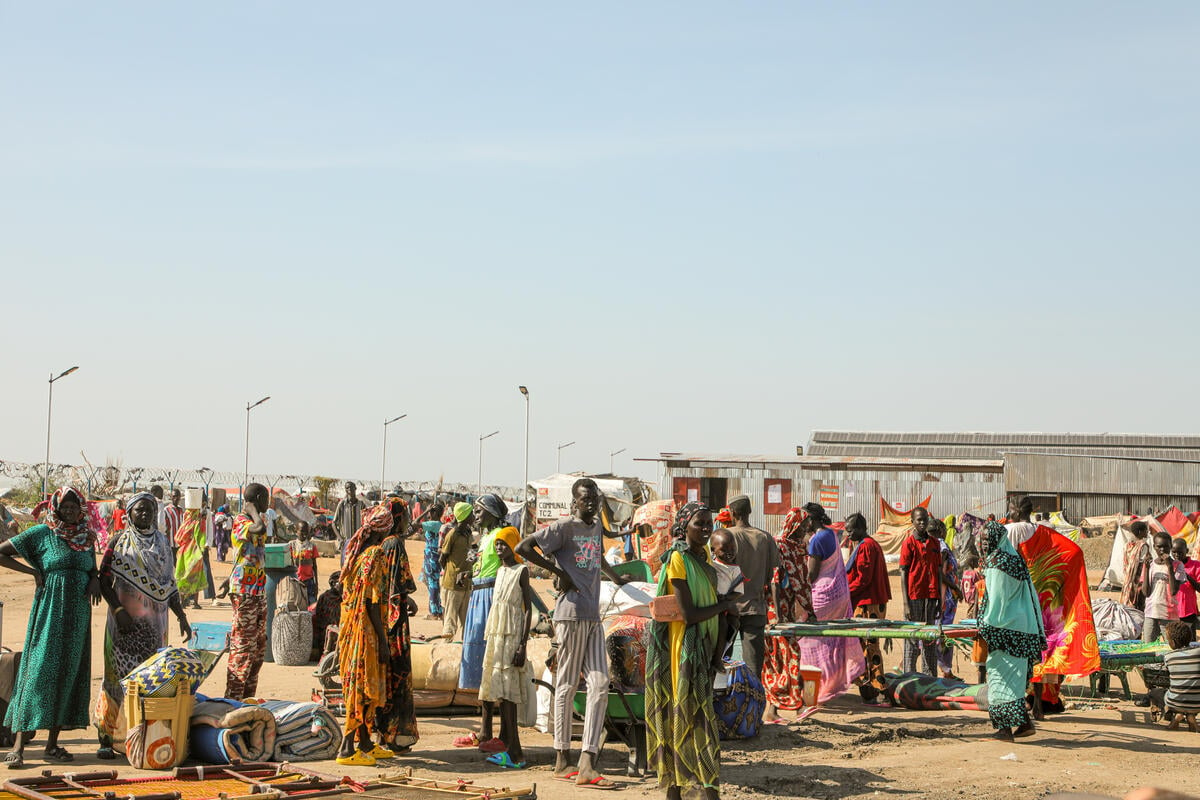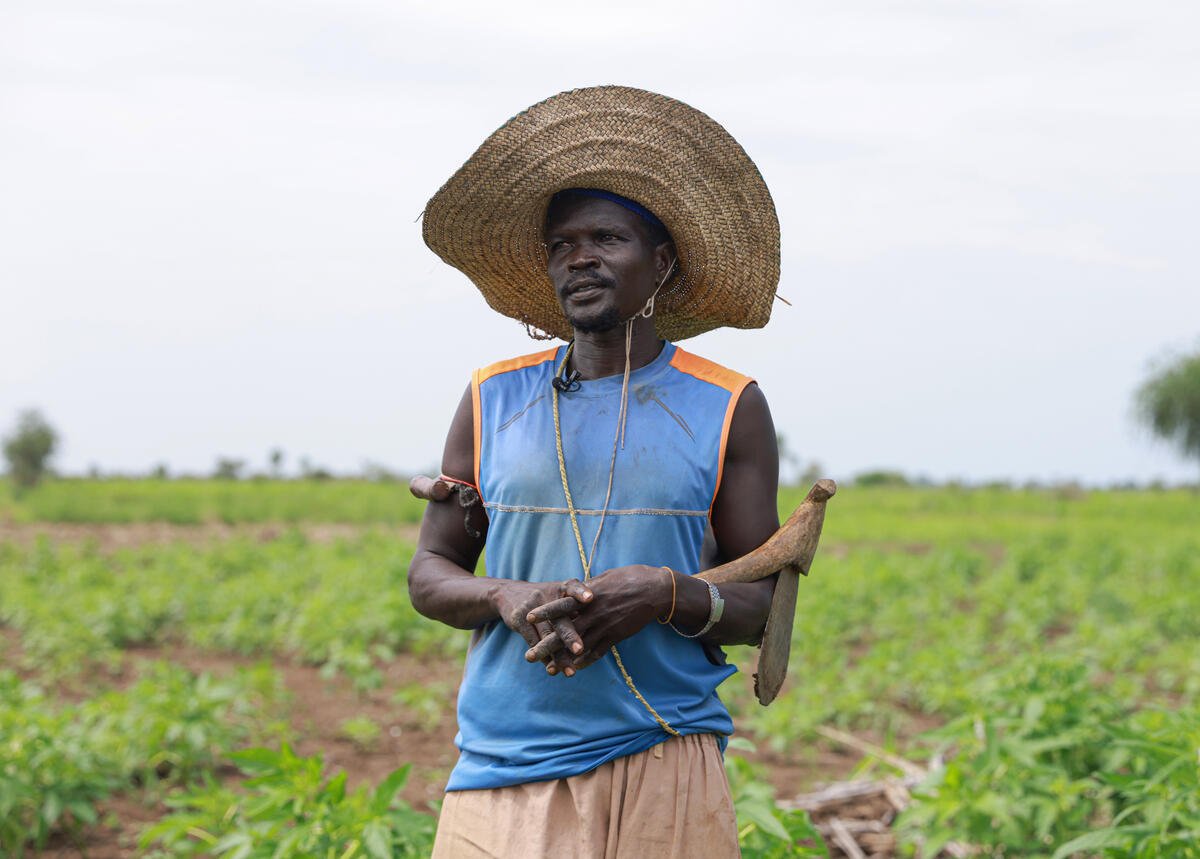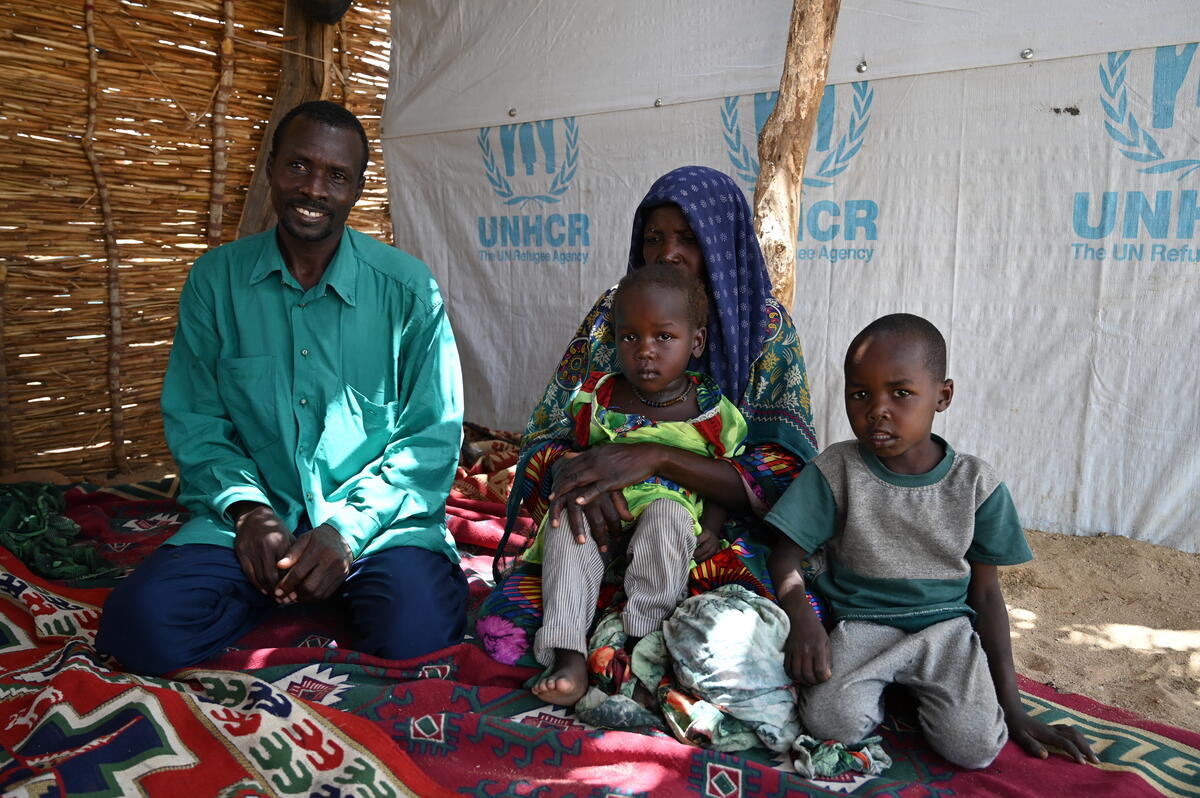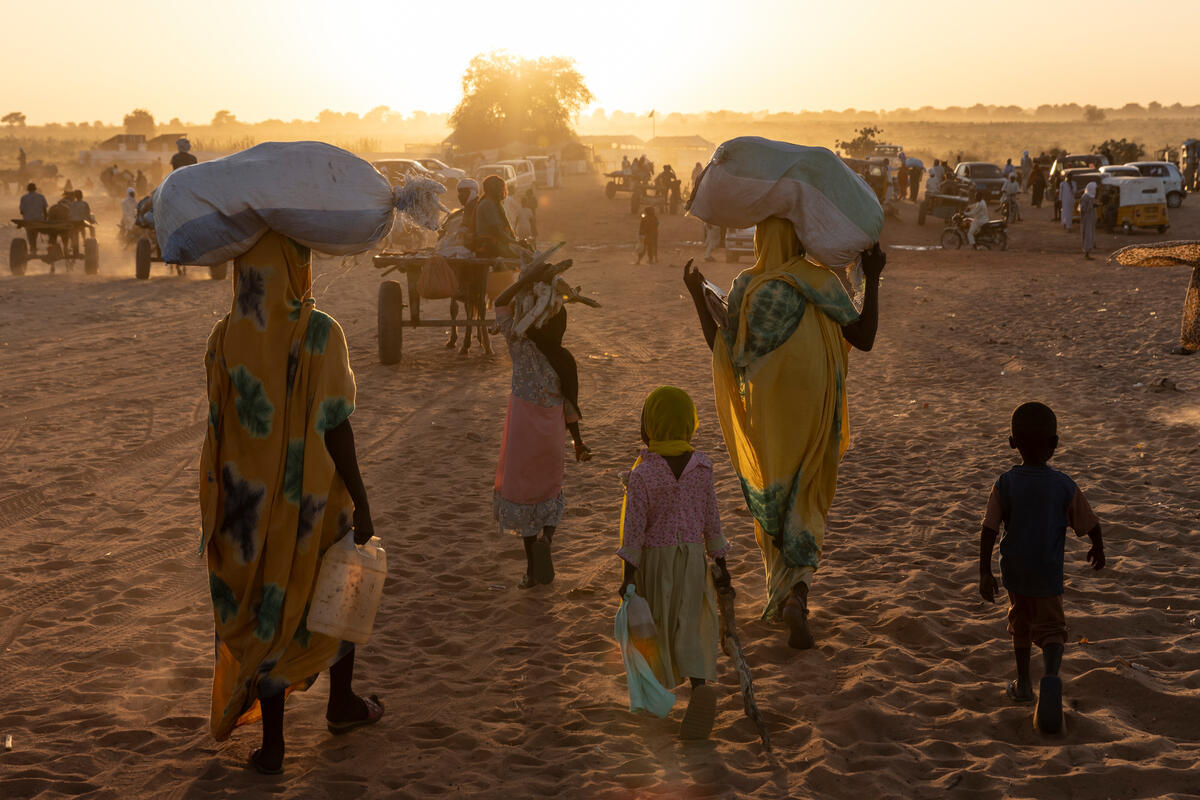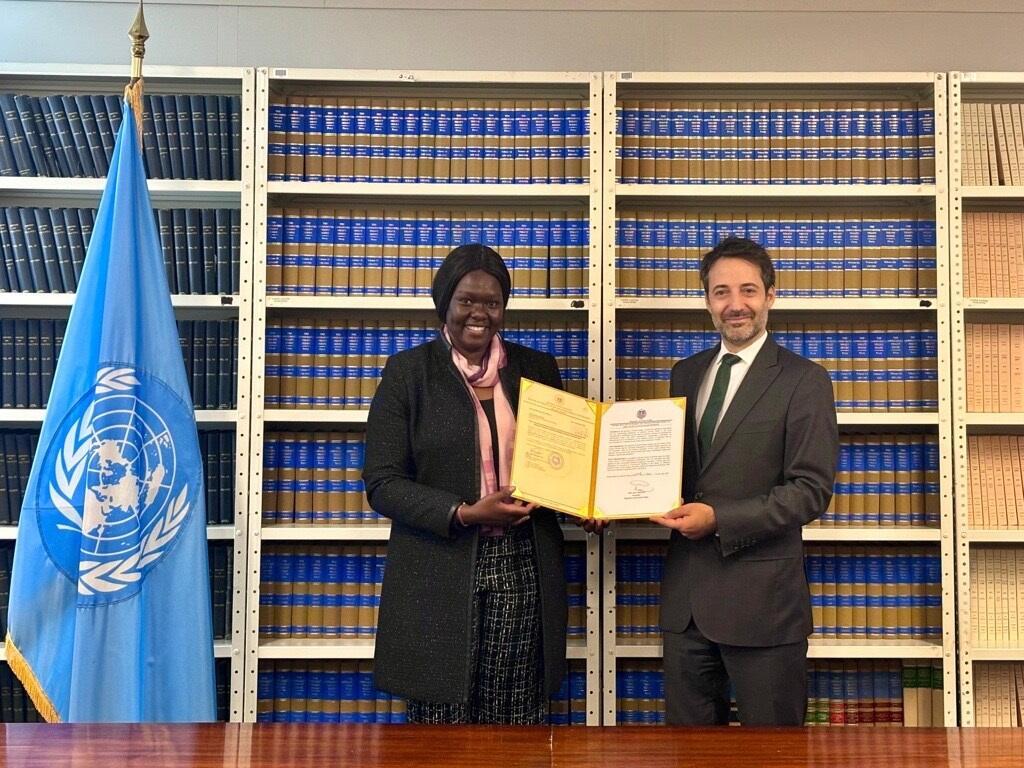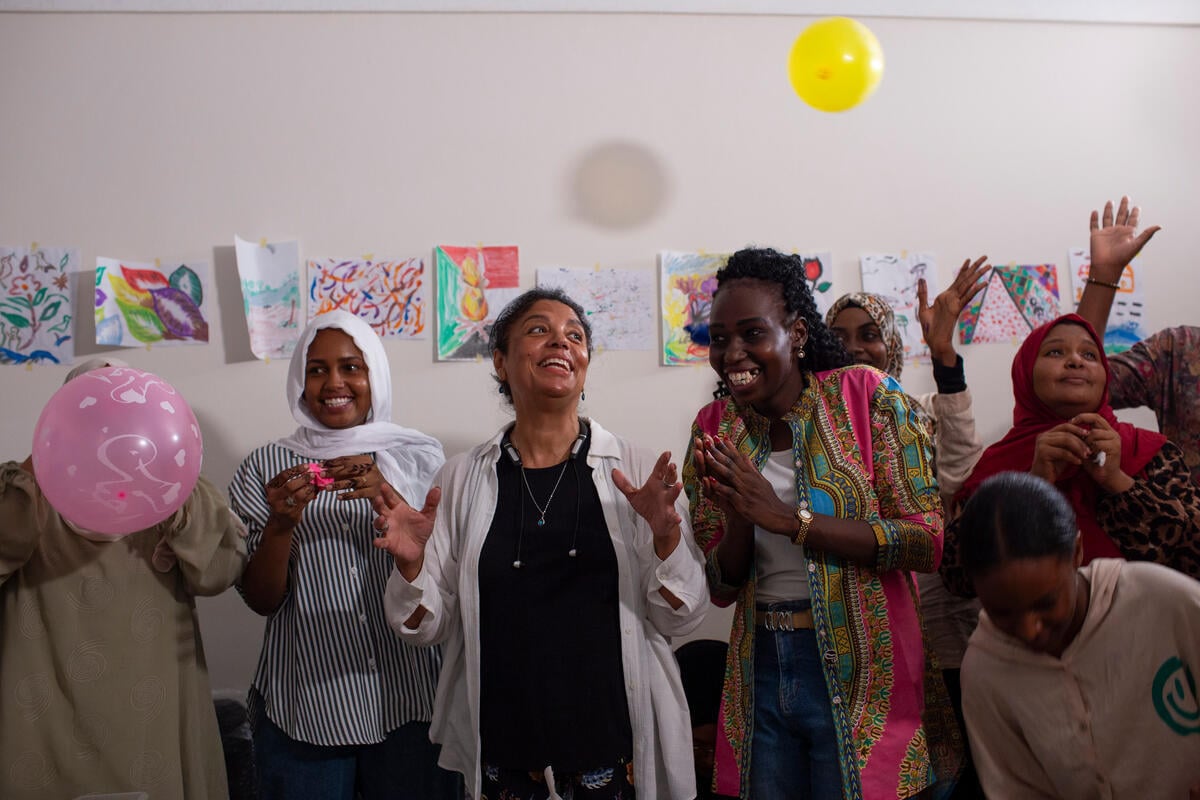Sudanese head south with their belongings and a fierce sense of hope
Sudanese head south with their belongings and a fierce sense of hope

JUBA, South Sudan, January 18 (UNHCR) - Reida Sustine was two years old when her parents fled Juba in the south and headed northwards to the national capital, Khartoum, during the Sudan civil war. Like many others from the south, her family tried to forget the conflict. As she grew older, she made a living from selling fish caught in the Nile, which divides at Khartoum.
The capital may have been a refuge, but daily life was a struggle. When South Sudan became an independent state 25 years later on July 9, 2011, Sustine knew it was time to go home. She gathered together her belongings and rode a barge heading south down the Nile. In two weeks she arrived back in Juba.
Sitting in a UNHCR transit centre, she and her family wait for a bus that will take them home to South Sudan's Western Equatoria state. "I don't know what home will be like," says the 27-year-old. "But I know it will be better than what I have had. I'll start a business and everything will be alright."
Since October 2010, more than 365,000 people have headed to South Sudan - a sizeable number made their lives in the north but have strong links to the south. Those making the journey arrive with their belongings and a fierce sense of hope. But many are also vulnerable. UNHCR and its partners work to verify that their return is voluntary.
Together with the International Organization for Migration, UNHCR also helps transport the most vulnerable, assisting and protecting them during their transit home. The agency manages way stations and assists in the provision of food and medical care.
Once returnees arrive, they are given initial food rations supplied by the World Food Programme. Those with only a few belongings are given reintegration packages, which include mosquito nets, blankets, sleeping mats, jerry cans, buckets, soap, pots and pans, and plastic sheets.
In some cases, UNHCR also assists the new arrivals in starting new communities. It runs a transitional shelter programme along with community-based projects, including livelihood and basic infrastructure. Both are aimed at providing opportunities for vulnerable returnee communities and for host communities. Since 2005 more than 800 such projects have been completed, including 330 involving construction or rehabilitation of schools, health clinics and water facilities.
"Many of these people have to start from scratch," says Rebecca Ondoa, a community services associate for UNHCR. "People ask themselves, 'Where do I put my children? Where do I work? How do I manage a family?' They need help to put the pieces together."
Last year, UNHCR funded the construction by a Kenya-based aid group, ACROSS, to build affordable mud-brick homes for new arrivals in Juba's Gudele West community. The agency has helped to build a school and establish water points for the community. It worked to provide local residents with the tools to make their own bricks, some of which they can sell to supplement their income.
For Poibe Bawaras Kune, the programme has meant that she now has a place to live. "I am so happy to have a place that is mine," says the 45-year-old. "We had no money to put up a structure. UNHCR mobilized people in the community who tried to build for us. It helped us so much."
Like others heading south, Kune spent much of her life in Khartoum before returning to Sudan. She remembers the best days of her life as the ones she spent as a child growing up in Juba before the war.
In Khartoum, she eked out a living washing laundry. When she left for the capital as a 20-year-old she thought she would never return. "You dream something you want to do and you are unable. So you're better to leave it alone," she says. "Now South Sudan is an independent state . . . The way is open for us now we have come back home."
By Greg Beals in Juba, South Sudan

